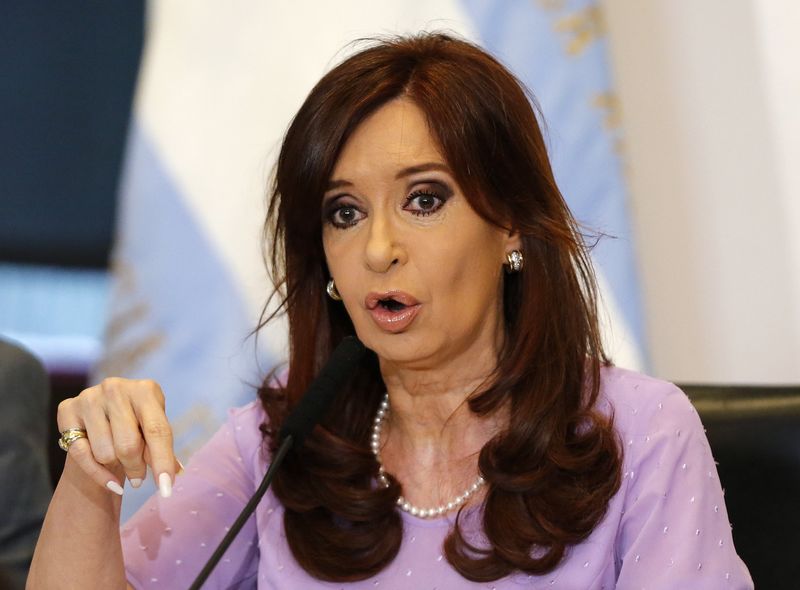By Richard Lough
BUENOS AIRES (Reuters) - Argentina's government toned down its stinging criticism of opponents on Wednesday ahead of what is expected to be one of the largest street protests of embattled President Cristina Fernandez's seven years in power.
Fernandez's final year in office is in turmoil after the murky death a month ago of Alberto Nisman, a state investigator who was poised to detail evidence behind his accusations that she plotted to cover-up his investigation into a 1994 bombing.
Top officials have accused the prosecutors behind the demonstration dubbed the 'silent march' of trying to conduct a "judicial putsch" and conspiring with right-wing political opponents to unseat Fernandez. On Wednesday they calmed it down.
"I don't want to give it any value, nor downplay its importance," the president's Chief of Staff Anibal Fernandez told reporters. "I'm not interested. It's the expression of people who have the right to do so."
Tens of thousands of Argentines are expected to march in silence through the capital, Buenos Aires, on Wednesday evening to honour Nisman, who was found dead with a single bullet to the head on Jan. 18.
Prosecutors organising the rally say it is not politically motivated. But the independence of Argentina's judiciary has long been in question. Marchers will likely call for an end to political interference and the intimidation of prosecutors and judges.
Security forces patrolling within five blocks of the march's route will not be allowed to carry weapons, Security Secretary Sergio Berni said on Tuesday, citing the risk of "provocations".
Nisman had accused Iran of being behind the 1994 bombing of a Jewish community centre and alleged Fernandez colluded with the Tehran government to whitewash his investigations in return for economic favours.
His death has sent shockwaves through Argentina ahead of October's presidential vote. It is still unknown whether the father-of-two shot himself or was murdered, spawning a blizzard of conspiracy theories and denting Fernandez's credibility.
The political crisis has piled pressure on a government already battling a debt default, stagnant economic growth and rampaging inflation.
Another state prosecutor, Gerardo Pollicita, on Friday said he would keep investigating Fernandez and formally reiterated Nisman's accusations.
A majority of Argentines expect never to know the truth behind Nisman's death, polls show.

"This is one of the most peculiar cases in Argentine history. The accuser is dead and the accused is the most powerful person in the country," said Argentine historian Federico Finchelstein.